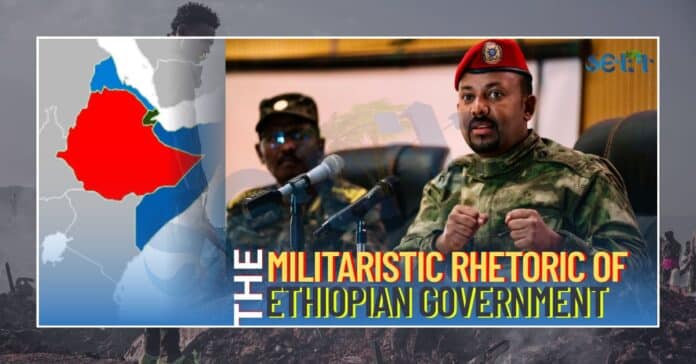Rhetoric and Political Implications
In a recent address to the House of People’s Representatives, Prime Minister Abiy Ahmed declared that access to the sea is an “existential issue” for Ethiopia. This choice of language raises significant concerns about the government’s communication strategy and its broader political implications. Defining an economic necessity in such dramatic terms introduces ambiguity and contributes to a climate of uncertainty and tension in the region.
Historically, when a government frames a national interest as existential, it implicitly suggests that obstacles to achieving that interest may justify extraordinary measures—including military action or the application of political and economic pressure. Such rhetoric is risky; it reduces the prospects for diplomatic resolution and heightens suspicions among neighboring states. It also raises international concerns about the already fragile stability of the Horn of Africa.
A more balanced and cooperative rhetorical approach—centered on mutual economic benefits—could build trust between Ethiopia and Eritrea. It would also create space for constructive dialogue aimed at resolving the longstanding issue of access to the sea through pragmatic and sustainable means.
Diplomacy and the Case for Bilateral Cooperation
Recent history has shown that economic cooperation between Ethiopia and Eritrea is both possible and mutually beneficial when approached with pragmatism and respect. From 1991 to 1997, Ethiopia utilized Eritrean ports for international trade, successfully avoiding the logistical challenges associated with being landlocked.
By pursuing a more focused diplomatic strategy, Ethiopia could negotiate renewed agreements with Eritrea, supported by international maritime law. Instead of stressing a purported existential necessity, Ethiopian leaders would do well to seek practical, precedent-based solutions.
Lessons from Switzerland and Paraguay
Several landlocked nations have adopted successful models to ensure access to global markets. Switzerland and Paraguay, for example, have managed to maintain economic stability and robust international trade without resorting to antagonistic rhetoric.
Switzerland, despite being entirely surrounded by foreign territory, has built strong partnerships with neighboring countries. Through trade agreements and sophisticated transportation infrastructure—including railway networks and river ports on the Rhine—it has secured unimpeded access to international markets. This illustrates that well-planned logistics can offset the disadvantages of lacking direct access to the sea.
Likewise, Paraguay has negotiated agreements with Argentina and Brazil to access maritime ports along the Río de la Plata. These treaties have allowed Paraguay to maintain a competitive position in international trade and develop its economy peacefully and effectively.
Ethiopia and Eritrea, following a similar model grounded in mutual benefit, could pursue joint infrastructure projects and enhance regional security—strengthening their standing in the global economic system.
A Path Toward Stability and Sustainable Development
To ease current tensions and promote regional stability, it is essential for the Ethiopian government to move away from a narrative that may be perceived as a threat to Eritrean sovereignty. Whether explicit or implicit, militaristic rhetoric breeds mistrust and obstructs the path to diplomatic progress.
Rather than emphasizing the “existential” nature of sea access, Ethiopia should engage in structured dialogue with Eritrea and relevant international institutions. A productive framework could include transit and trade agreements governed by international treaties—ensuring economic cooperation, legal clarity, and peaceful development.
A future of shared peace and prosperity in the Horn of Africa depends on a foundation of transparent negotiations, mutual respect, and full recognition of national sovereignty. Avoiding unnecessary provocations is key to building lasting regional stability.

